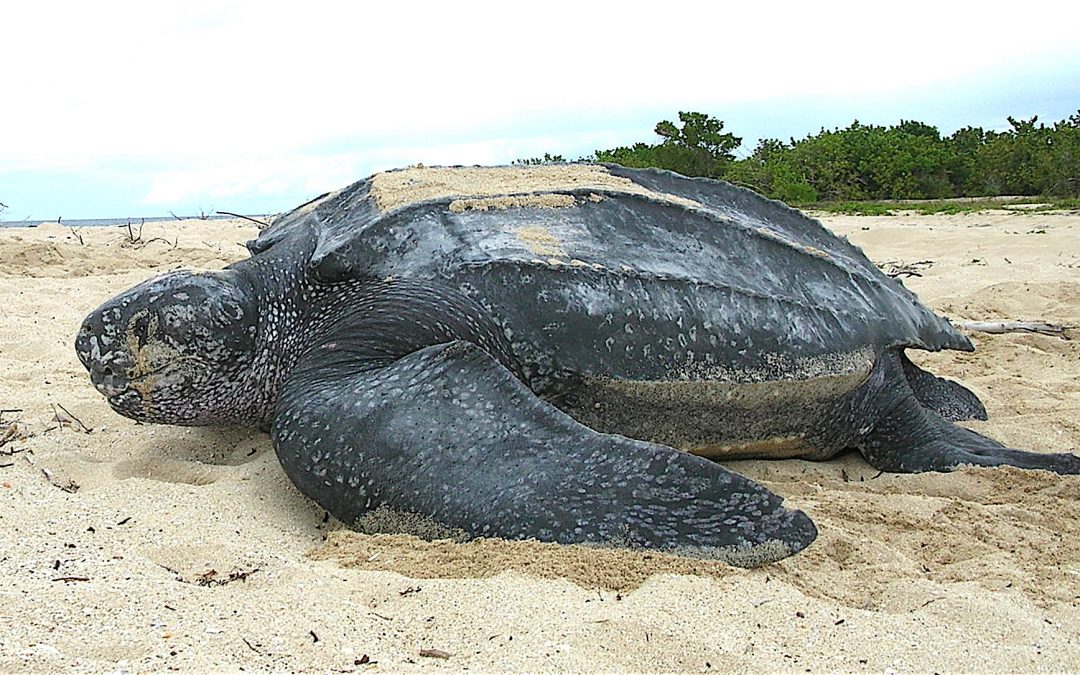Leatherback sea turtle nesting season has begun here in the Caribbean. From March to August, the endangered species makes their way onto our beaches to lay their eggs. Sandy Point National Wildlife Refuge is a protected beach that sees quite a bit of turtle activity. The Refuge is closed to the public from April 1 to August 31 to keep the turtles safe and give them the best possible chance to thrive; however, there are a few opportunities to observe these incredible creatures. For a very special Perfect Day on St. Croix, we recommend that you Sign up for Turtle Watch at Sandy Point Now.
St. Croix Environmental Association is offering two Turtle Watch dates this year: Tuesday, April 30 or Thursday, May 23. Turtle Watch nights are for SEA members only and you can learn more by contacting SEA at info.atsea@gmail.com or 340-773-1989.
The United States Fish and Wildlife Service (USFWS) offers the Turtle Watch Program to community groups and youth groups. The program runs from Tuesday through Saturday, April 15 to July 31. If you would like to schedule a group for a Turtle Watch with USFWS, call 340-690-9452.
To keep on theme, we suggest having dinner at Leatherback Brewing Co. before making your way to Sandy Point. While there, pick up a growler or 6-pack to enjoy after your Turtle Watch experience.
St. Croix Environmental Association will be kicking off turtle season at Southgate Coastal Reserve with a beach clean-up on April 23. If you’re reading this in time, consider joining them to prepare the beach for turtle nesting season.
Things you can do to respect sea turtles on St. Croix
- Do not insert umbrella posts deep into the sand just in case there are sea turtle eggs below the surface.
- Keep a close eye on your dogs on the beach to be sure that they don’t dig up a sea turtle nest.
- Don’t leave any trash behind on the beach.
- Contact Sea Turtle Census Initiative if you come upon a Leatherback adult or hatchling.
- If you do encounter a nesting sea turtle, do NOT shine a light on or near the turtle. Let it be and do not touch it!
- If you live near a nesting beach, remove any sources of artificial light that faces the beach.

